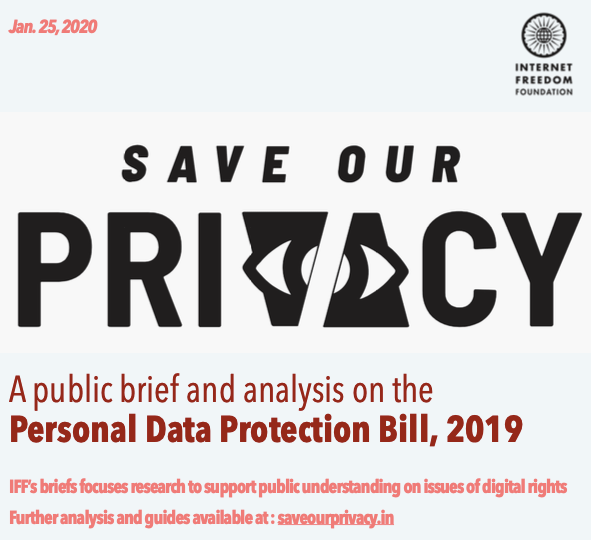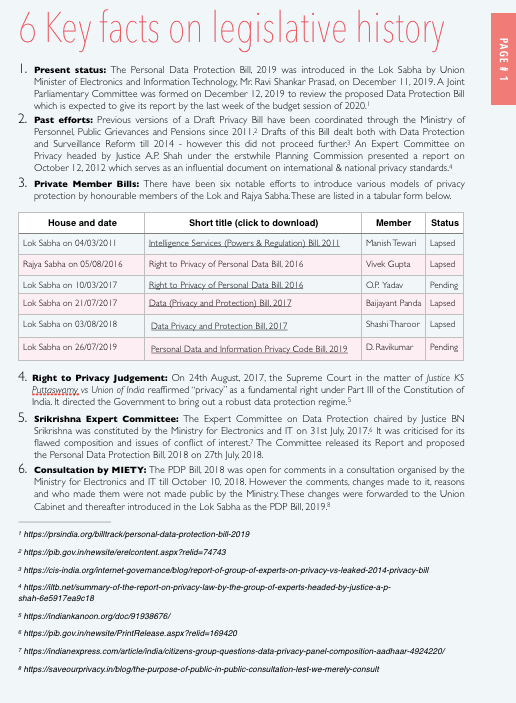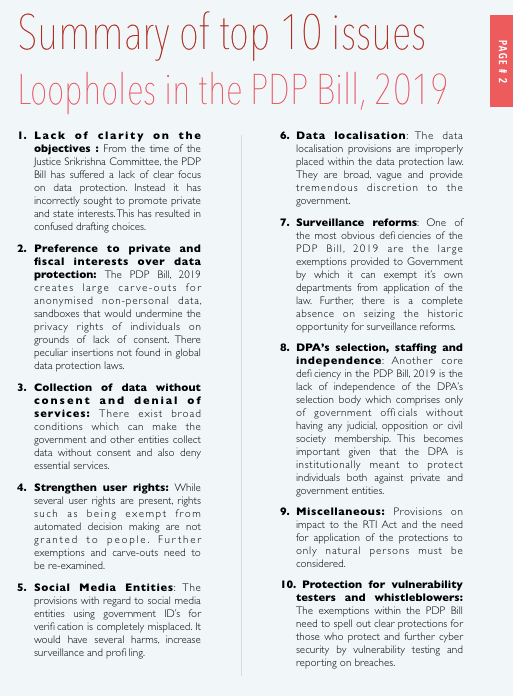Tl;dr
Yesterday, we explained the process of participation and sending views to the Joint Parliamentary Committee on the Draft Personal Data Protection Bill, 2019. As we committed today we are making available a public analysis that helps you discover the top 10 issues with this legislative proposal. Today we have provided three parts in a public brief that covers the legislative history, a summary of top 10 issues and then a detailed clause wise analysis. We hope this helps you form your own views and then participate in the consultation to help bring the power of civic participation to data protection!
UPDATE 10.02.2020 : The last date for submission is 25.02.2020 as per this press communique.
How to participate in the Joint Parliamentary Committee
As we informed you yesterday, the Data Protection Bill, 2019 is finally stepping towards a finalized version. It may soon pass through parliament and become law. This revolutionary legislation promises to bring a level of control back to our digital lives. But this will be only possible if you participate. To do this you need to send in comments (ideally three weeks from 22.01.2020) by February 12, 2010 by sending an email to to [email protected] and [email protected]. You can read more about the process in a post we made here.
Read the #SaveOurPrivacy public analysis
SaveOurPrivacy has worked since May, 2018 as a framework for civil society groups to put forward demands on data protection and surveillance reform. Powered by IFF and comprising of many organisations and volunteers it has prepared a public analysis of the Data Protection Bill, 2019.

This brief runs you through the legislative history of the bill and the past parlimentary efforts to bring a model privacy law in India. These are six key facts that we think you should know.

It further includes a summary that highlights the top 10 issues with the present version of the Data Protection Bill, 2019. We urge you to go through this and circulate it widely. We have made every effort to break down legal jargon and make it as simple and accessible as possible.

In the coming weeks the SaveOurPrivacy volunteers will create further materials to aid public understanding and participation before this Joint Parliamentary Committee. Here is to more (data) power to the people!

